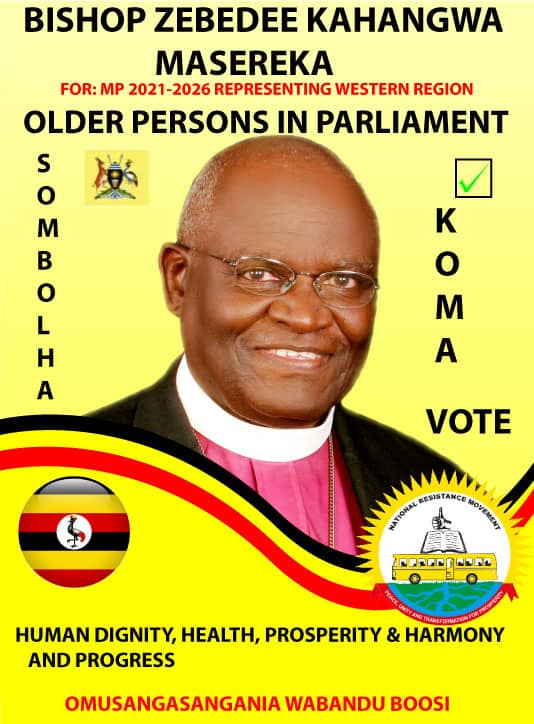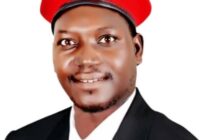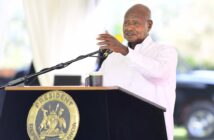The Church of Uganda is in a crisis after a retired Bishop declared his interest to contest for a parliamentary seat on the National Resistance Movement (NRM) ticket, yet religious elders had endorsed Rtd. Col. Hon. Stephen Basaliza for the Elderly MP seat in the 2021 elections.
The retired Archbishop Bishop of South Rwenzori, the Rt. Rev. Zabedee Masereka, wants to represent the elderly in the western region on the NRM ticket.
However, Some Bishops contend that Masereka’s action contradicts a resolution adopted in 2010 barring ordained ministers from participating in partisan politics. We’ve learnt that the issue was first raised by retired Bishop Zac Niringiye on the ‘Church Leaders’ Forum’, thereby sparking off a debate among the bishops over the matter, who questioned how the retired bishop had reached such a decision which contradicts the church’s position.
Some bishops have since opposed the idea of Masereka declaring his political intention, which they said contradicts church guidelines and resolutions.
In his message, Niringiye states:
“Fellow Church of Uganda leaders, greetings. The picture of our brother Bishop Masereka is circulating – clearly with him offering himself for a political position, on the NRM party platform.” “What is the position of the Church for an ordained minister to join partisan politics? It is possible that some will plead that he is retired. However, he is still an ordained minister in the Church of Uganda,” Bishop Niringiye argued.
In response, the Rt. Rev. Dr. Fred Sheldon Mwesigwa, Bishop of Ankole Diocese, said the provincial assembly minute that was passed during the time of former Archbishop Luke Orombi details conditions under which clergy can choose to participate in active politics without causing embarrassment or offence to the Church.
He reminded Niringiye that it happened at the time he (Niringiye) resigned as bishop to start engaging in active politics. Mwesigwa asked the provincial secretary to retrieve and circulate the minute.
The provincial secretary Rev. Can. Captain William Ongeng, circulated the resolution adopted by the Provincial Assembly and advised the clergy not to involve themselves in partisan politics because there is no way one will serve a neighbor who doesn’t belong to their Political affiliation.
What Does The Church Say/Rules Governing Bishops
PROVISIONAL ASSEMBLY STAND
1. The church to pray for a violence free elections.
2. That in light of the divisive nature of politics, no ordained person or commissioned worker shall seek an elective post. However, should one wish to do so, they will follow the same procedure as Civil servants and resign from their work.
3. That the clergy and lay readers should desist from direct involvement in politics.
4. That no clergy should openly support a party or carry a Political party card.
5. That display of Political materials on Church premises are prohibited.
6. That the clergy can encourage Christians to stand for elective positions at all levels.
7. That should a clergy choose to resign from their work in the church to join political positions they shall not wear clerical robes. Failure to abide by this will warrant disciplinary measures against them.

The Bishop has since printed partisan posters wearing clerical robes which contradicts with the church
Rwenzori Region Elders Endorse Basaliza
We have established that despite Masereka’s political gimmicks, elders in Rwenzori region, led by Mr. Ephraim Byabashaija, the chairman of the Elders Forum in Kyenjojo District, have since unanimously agreed that Hon. Basaliza, a former NRA/M, UPDF humble serving officer, Legislator, and Human Rights Commissioner has been at the forefront of fighting for them and hence should lead them.
Why Basaliza?
Basaliza has been at the helm of political leadership for over 20 years unlike Masereka, who spent most of his time in church.
Basaliza was among the first contingent AMISOM Troops to be deployed to Somalia in 2007, under the Command of Gen. Levi Karuhanha, (RIP). With that field experience, he understands what the elderly are going through, among them being veterans.
After his tour of duty in Somalia he returned to Uganda and was appointed Chief of Pensions, Gratuity and Survivor Benefits in the UPDF where he served with Diligence and honesty without complaints.
Hon. Basaliza advocates for the elderly years of getting pension to be reduced from 80 years to 60 yrs as it was before, such that more elders can benefit from this scheme.
He was then given another assignment in the Uganda Human Rights Commission and since he understands the challenges of the elderly and he’s been advocating for their equality, fairness through the Commission.
He wants to Link the Elderly to Operation Wealth Creation, Ministry Of Agriculture/NAADS Program such that they get some provisional support from Government.
As a lawyer, he wants to advocate for the Elderly, and fairness in Making a Will such that after death, their property doesn’t get misplaced/stolen.
Health Stability of the Elderly:
He also wants the elderly to have special care and handling at health facilities and said he will make this a priority).
He also wants to ensure that the elderly get their gratuity, retirement benefits and other entitled payments, including the Social Assistance Grant for the Elderly (SAGE) scheme funds without much hustle.
Hon. Basaliza maintains that economic, social, and cultural rights (“ESCR”) should be monitored through general reporting and, in very exceptional cases, through individual adjudication of violations.
He also aims at ensuring that the country recognizes the inherent value and wisdom of elderly people, which they contribute to the community.
He aims at promoting respect and appreciation for the participation of
the elderly in the community. “Some elders are not respected in the society we live in but we have to empower, protect and celebrate the elderly,” he said.
Furthermore, considering the often vulnerable status of the elderly, the community – individually and collectively – shall take action to promote the rights and wellbeing of the elderly.
Hon. Basaliza wants to protect the rights and interests of the elderly, and provide the elderly with the support necessary to sustain the quality of life and dignity befitting their respected status in community.
He added that “I’m sure through sensitizing and working with the community we shall protect and
promote the health and mental well-being of the elderly. We shall have the duty to represent and augment the lawful rights and interests of the elderly.”
Basaliza also promises to promote projects that administratively and/or financially assist employers in
managing elderly employees, such as: counseling and advising, vocational training and maintaining facilities necessary to promote active involvement of the elderly in the workforce.
He also promises to provide appropriate legal structures and remedies in the case of third party caretaker abuse or negligence for the elderly.
“We need to task the state to take on a duty and measures to ensure the elderly get the basic necessities of life such as adequate nutrition and potable water necessary for their health and wellbeing.
Our Government has to put measures in place to create conditions conducive for the elderly to have access to basic amenities of life including, but not limited to appropriate shelter, clothing and sanitation as per prevailing societal standards. Those are what I need to address,”Basaliza noted, adding that;
“The State shall strive to create such
conditions through committing state resources towards developing necessary infrastructure, and provision of economic assistance to the elderly.
Our Government has the duty to establish necessary programs and regulations that provide material assistance to the elderly and those who support the elderly. Material
assistance shall be provided in the form of tangible support necessary for the maintenance of the elderly at times when an elderly person cannot support himself or herself or rely on support from their family, including basic necessities and amenities. This should be at least 60 years, not 80 years as it is currently.”


